Cash offers greater choice for refugees in Rwanda
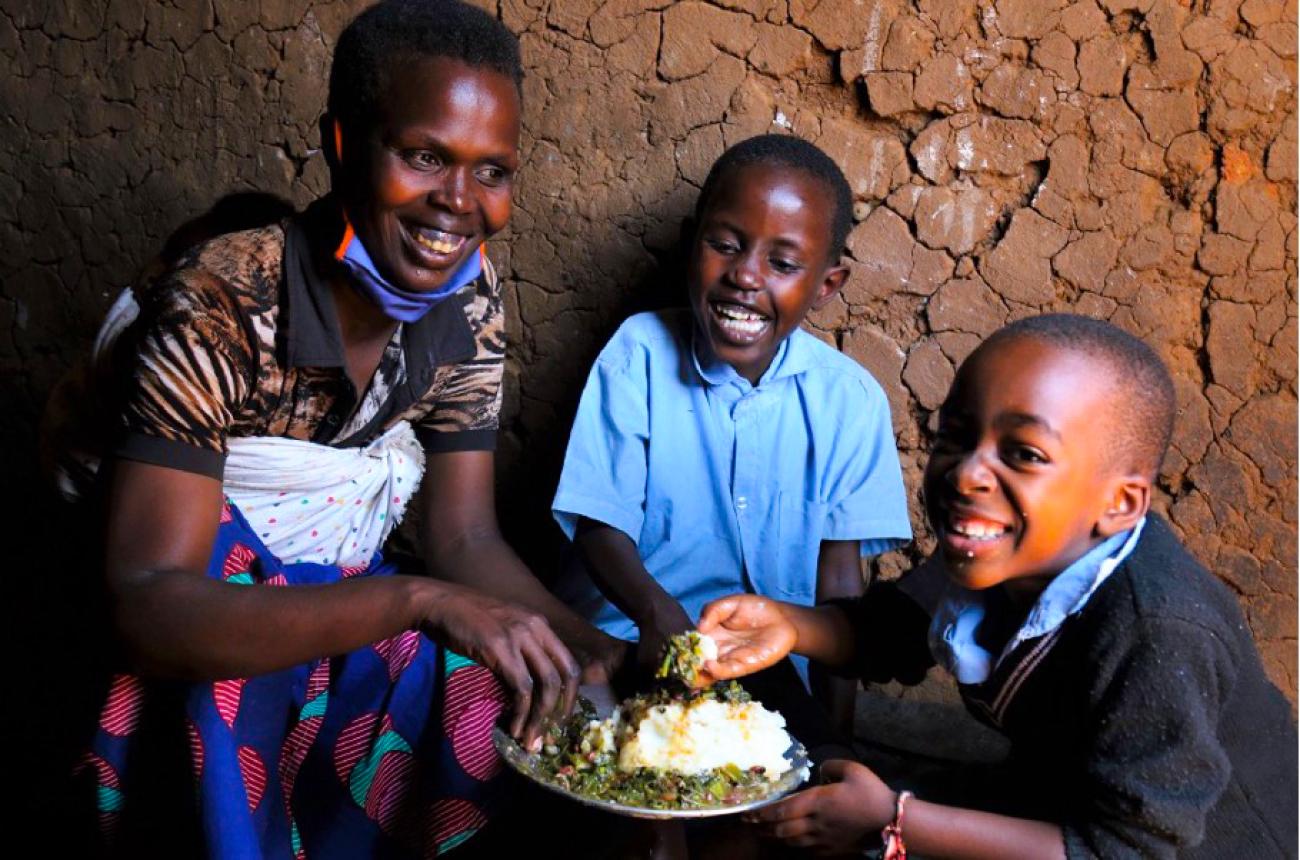
“I miss my home, but I do not feel that it is safe enough to go back. Peace, food and security are my main priorities.”
Joselyne and her six children fled their home in the village of Kirundo in north-east Burundi when violence broke out following elections in 2015.
Today, she is one of 38,000 Burundian refugees living in Mahama Camp in south-east Rwanda.
“I heard shooting and people screaming,” says Joselyne. “I thought the violence would only last a few weeks and so I hid my family in a nearby forest, but I soon realized the situation was worsening and escaped to safety.”
Rwanda hosts over 127,000 refugees and asylum seekers, most of them from the Democratic Republic of Congo and Burundi. Mahama camp — which hosts 56,000 refugees (around 45 percent of the refugee population) is the largest of five camps.
The refugees depend mainly on humanitarian food assistance due to limited livelihood opportunities in and around the camps.
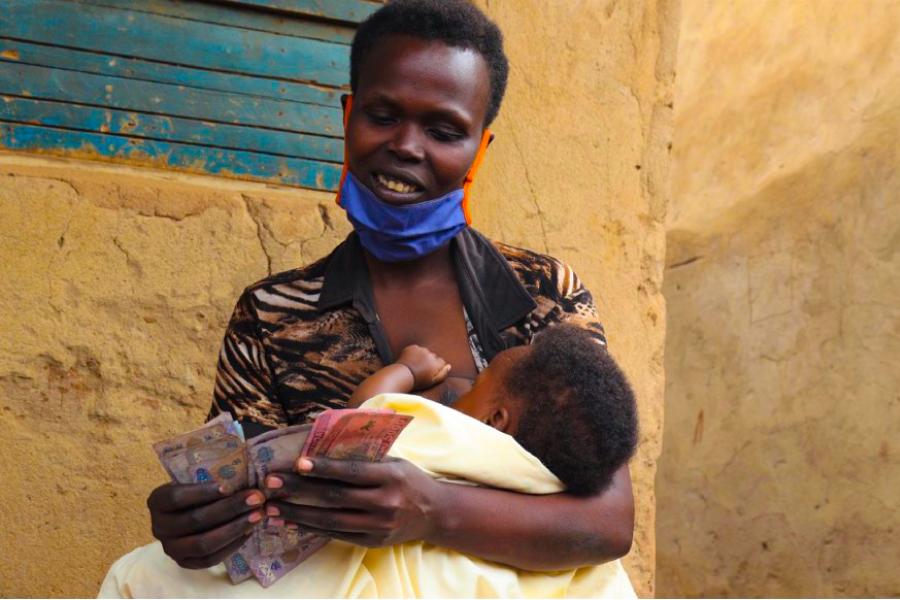
The World Food Programme (WFP) supports the most vulnerable refugees with cash assistance — empowering them to address their essential needs by purchasing goods from the local markets, while also helping to boost these markets.
WFP also provides nutrition supplements for malnourished children under five, pregnant women and breastfeeding mothers and people receiving treatment for HIV and tuberculosis.
Some 28,000 refugee children and over 7,000 children from host communities are also supported with daily nutritious school meals.
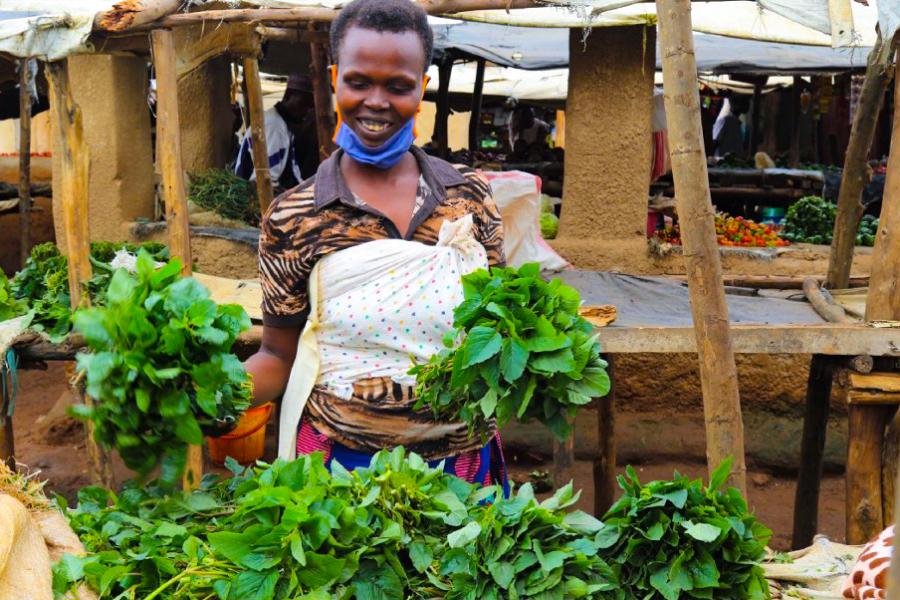
Following years of funding shortfalls and to ensure the most vulnerable people receive assistance, WFP introduced a prioritization scheme in May 2021 — a system under which refugees are given rations according to their levels of vulnerability.
Under this scheme, the most vulnerable refugees — such as Jocelyne and her family — receive 92 percent of a full ration and those deemed moderately vulnerable receive 46 percent of a full ration.
Joselyne’s children receive a daily nutritious snack of porridge on school days, and she is supported with a monthly cash transfer of 49,000 Rwandan Francs (US$48) which helps her to meet her family’s basic needs.
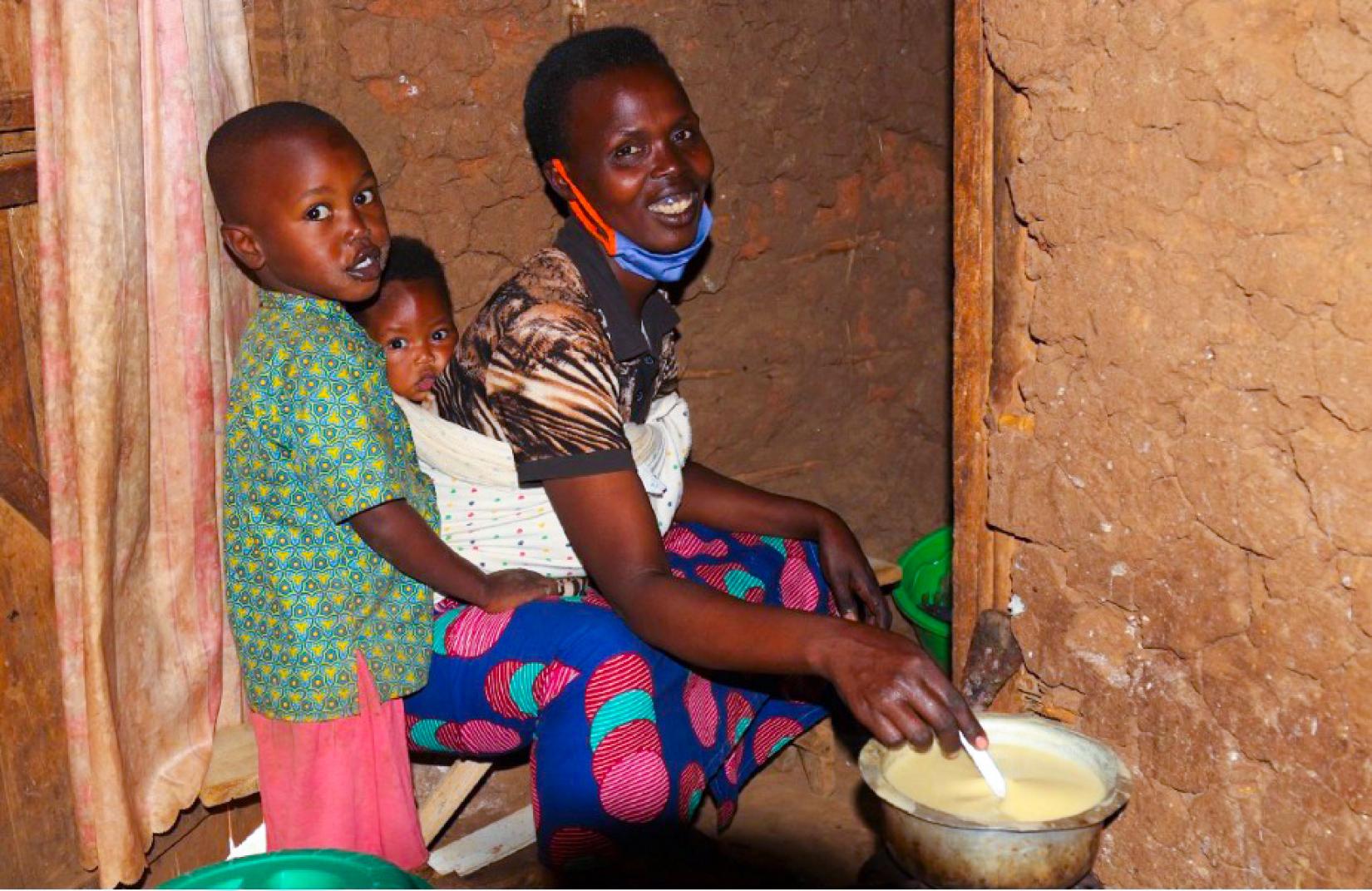
“I really miss my home, but I do not feel that it is safe enough to go back,” says Joselyne, “Peace, food and security are my main priorities.”
WFP’s support for refugees in Rwanda is possible through generous contributions from donors such as the European Union’s Civil Protection and Humanitarian Aid Operations (ECHO) and others.
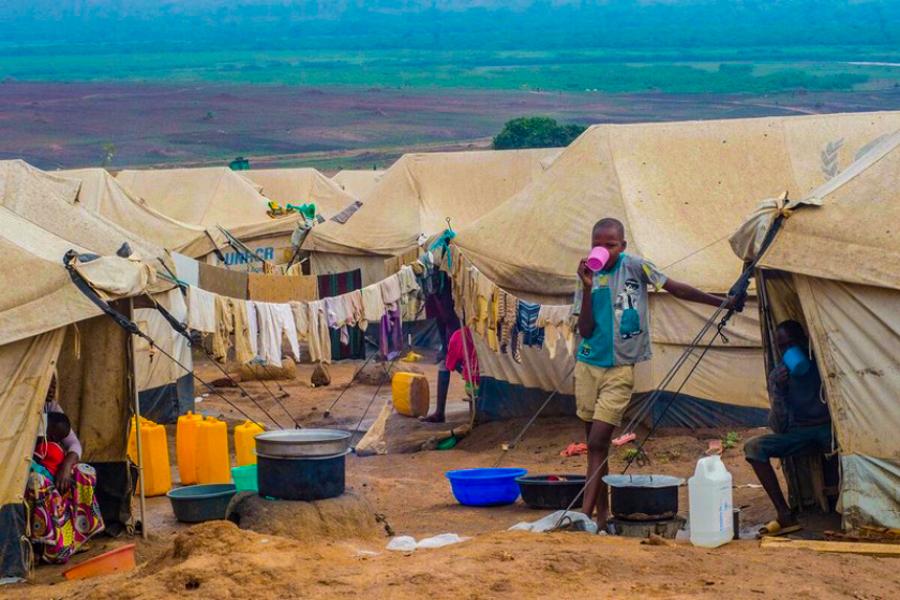
WFP urgently needs US$9.8 million to be able to provide full rations to all camp-based refugees in Rwanda through 2022.







